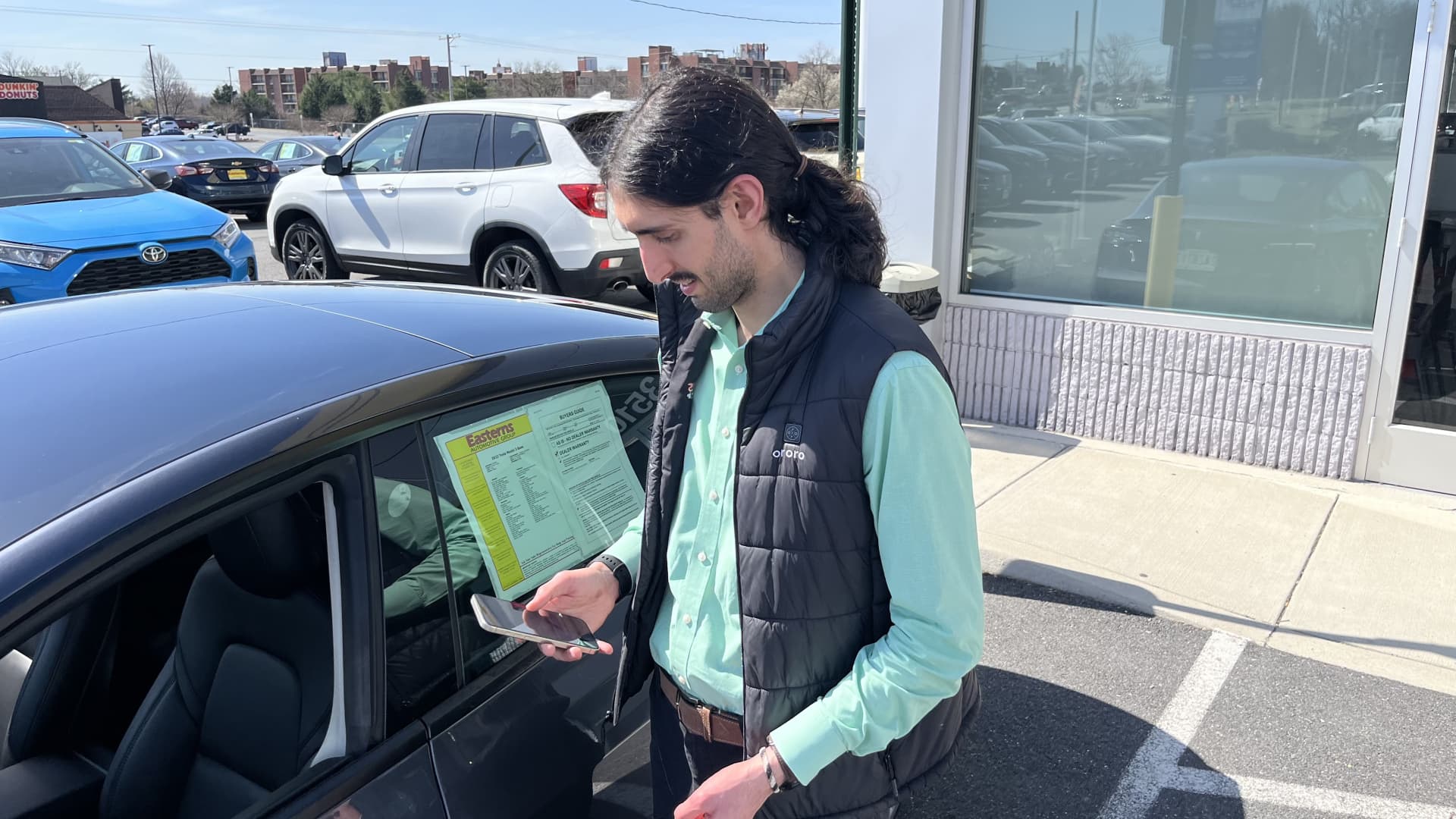
Recurrent, a Seattle-based startup, aims to do for electric vehicle batteries what odometers do for fuel-powered cars: show the wear and tear on the battery and its future value.
The used car market is more than twice the size of the new car market, and EVs are fast becoming a part of it. That presents a problem when it comes to valuing these cars, which run entirely on batteries.
Consumers have fundamentally different questions about used electric vehicles, especially when it comes to the battery life. The battery is a significant component of an EV, because the cost of replacing it can exceed the value of the used car itself.
“We help used EV buyers understand what they’re getting when it comes to vehicle range, and how that changes in different weather conditions and how that changes over time as the car ages,” Scott Case, CEO of Recurrent, told CNBC. “The battery in an EV doesn’t wear down like your iPhone battery does. Your EV is not an iPhone on wheels.”
Recurrent uses no hardware, just the software that runs on thousands of electric vehicles daily. It can analyze a car over and over again, normalizing things like weather, driving and charging style in order to compare two similar vehicles and show which has a stronger battery, and consequently a higher value.
“It’s similar to how everyone in the used car ecosystem needs to know the odometer of a used combustion engine car,” Case said. “Everyone needs to have a common currency to be able to value these vehicles as they show up in the market.”
EV owners can connect to Recurrent via methods like OnStar or a Tesla account. Dealerships can also use Recurrent to show comparisons to buyers, potentially driving up the sales price for cars with stronger batteries.
As the used EV market grows, this technology, which so far has no U.S. competition, is attractive to investors.
“When we look at EVs, we’re thinking about this massive transition, which is sort of a once-in-a-lifetime opportunity, where you’re seeing the entire global auto market shift from gas cars to EVs, and the bulk of that is going to happen the next decade,” Paul Straub, co-founder and managing director of Wireframe Ventures, an investor in Recurrent, told CNBC.
In addition to Wireframe Ventures, Recurrent is backed by ArcTern Ventures, Powerhouse Ventures and EnerTech Capital. So far, it has raised $19.25 million.
Recurrent now has about 20,000 drivers on its platform since it started last June, and Case says the company has tripled its revenue in the past year.
He estimates that over the next five years the used EV sector will grow tenfold, because no matter how much new EV adoption grows, the market for used cars will grow faster simply due to how many are already on the road.






